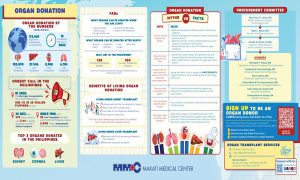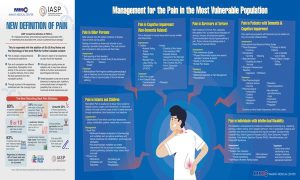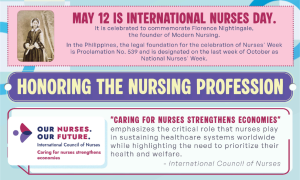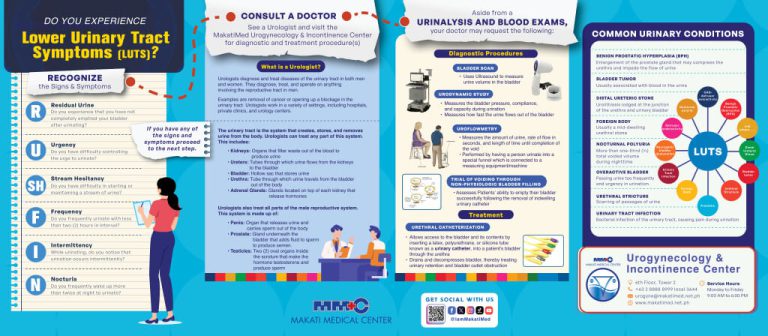MakatiMed | Delivering Malasakit
The principle of malasakit is exactly what Makati Medical Center puts into action when providing high quality services. Affectionately known as MakatiMed, this premiere Philippine hospital is committed to delivering its promise to provide its patients with personalized and optimum healthcare.
When patients visit a medical establishment to receive treatment, they are in a vulnerable physical and emotional state. Therefore, it’s very important for them to know their fundamental rights as patients and their active involvement in their care for safe and quality outcomes, be it diagnostic or therapeutic in nature.
The Fundamental Rights of Patients
Every patient is entitled to certain rights mandated by the law. Some additional legal regulations have also been designed to extend further protection to patients.
Below are 15 primary rights of patients in the Philippines, as enumerated by the World Medical Association Declaration of the Rights of the Patient.
1. Right to Good Quality Health Care and Humane Treatment
Every person shall be given due medical care that corresponds to his or her state of health, within the limits of resources, manpower, and competence. No form of discrimination should hinder a patient from receiving quality healthcare.
As for patients needing emergency or urgent attention, they shall be given immediate medical care and treatment without being asked to provide advance payment in any form until he/she is stable.
2. Right to Dignity
The patient’s dignity, culture, and values shall be respected at all times. As such, terminally ill patients shall be entitled to humane end-of-life care to make dying as dignified and comfortable as possible.
3. Right to Choose Health Care Provider and Facility
Every patient has the freedom to choose which physician and healthcare institution to serve him or her, unless the patient has waived this right in writing, is under a service facility’s care, or the safety and health of the public are involved. Consulting with a specialist and seeking a second opinion from another medical professional is also allowed at his or her expense and request, if appropriate.
4. Right to Informed Consent
All patients are granted the right to an honest and adequate explanation of the proposed medical procedures, in a suitable language and manner that is understood by the patient. Furthermore, the medical professionals tasked with performing the procedure must provide his or her name and credentials, as well as details of possible risks and probability for success.
Accordingly, without written informed consent, no patient shall be subjected to any kind of procedure, except for some special cases.[FMJ1]
- For unconscious patients – informed consent will be sought from a legal representative or next of kin. If a representative is not available, and medical or surgical intervention is urgent, then the patient’s consent is presumed.
- For legally incompetent patients – if the patient is a minor or is considered legally incompetent, the consent of a legal representative is needed.
- For procedures against the patient’s will – medical procedures and treatment against the patient’s will can only be carried out under exceptional circumstances. In such cases, consent is sought from the next-of-kin.
5. Right to Refuse Diagnostic and Medical Treatment
For as long as his or her refusal will not jeopardize public health and safety, any patient who is of legal age and mentally competent has the right to refuse diagnostic and medical treatment. Upon refusal, the patient releases his or her healthcare providers from any obligation relative to the consequences of the decision.
6. Right to Refuse Participation in Medical Research
The patient shall be advised if there are plans to involve him or her in any form of medical research. Moreover, he or she can refuse involvement or may not be subjected to scientific study without written consent.
7. Right to Religious Belief and Assistance
Any patient may refuse treatment and procedures which may contradict with his or her religious beliefs. However, this right may not be imposed by guardians upon minor children in life-threatening circumstances.
Furthermore, the patient has the right to receive spiritual and moral support, including that from a priest, minister, or representative from his or her chosen religion.
8. Right to Privacy and Confidentiality
Patients have the right to evade any form of unwarranted private or public exposure and demand that all information and records regarding their healthcare be treated strictly confidential. Without a patient’s consent, no healthcare practitioner shall divulge any sort of information, except for certain circumstances.
9. Right to Disclosure of and Access to Information
Throughout his or her hospital care, the patient shall be provided with information regarding his or her disease, as well as the treatment administered, medications prescribed, etc.
In addition, a patient, given that he or she is of legal age and sound mental state, is entitled to receive an itemized bill of the healthcare services rendered. Lastly, after confinement, the patient has the right to request a written summary of the treatment course, as well as a medical certificate.
10. Right to Health Education
The patient has the right to health education that will help in making informed decisions surrounding their condition and the health services available to them. This includes methods of prevention, early detection, and healthy lifestyle choices.
11. Right to Correspondence and to Receive Visitors
A patient can communicate with and receive visitors under the reasonable restrictions prescribed by a medical establishment’s rules and regulations.
12. Right to Medical Records
A patient is entitled to receive a summary of his or her condition and medical history. Provided that an attending physician is present, he or she may access and view his or her medical records, subject to some reasonable limits.
Upon discharge and at the expense of a patient, he or she may obtain record reproductions, regardless of whether he or she has completely settled monetary obligations or not.
13. Right to Leave Against Medical Advice
Patients are allowed to leave any healthcare establishment, regardless of his or her physical state, given that he or she is adequately informed of consequences, has released involved parties of obligations, and his or her decision to leave will not affect the health and safety of the public.
14. Right to Express Grievances
Every patient has the right to express and file complaints about the services received from a medical institution, without fear of being reprised or discriminated.
15. Right to be Informed of His or Her Rights and Obligations as a Patient
Every individual shall be informed of his or her rights and obligations as a patient. Additionally, it’s the duty of institutions to inform patients of their rights with regards to its rules and regulations.
Key Takeaway
Knowing your rights as a patient is highly indispensable for your protection and welfare. Keep these rights in mind when selecting a medical institution and always ensure that it upholds the value of malasakit in providing quality and safe healthcare.











